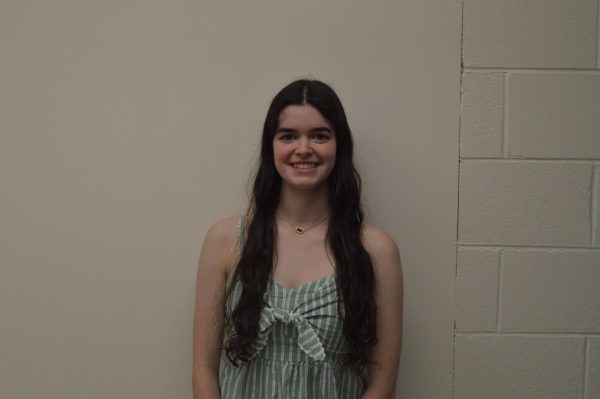Advanced Placement, or AP, classes at Kaneland are classes who’s curriculum is developed with college courses in mind. At the end of the year students may then take the AP exam which if they prove they have learned the material by scoring high enough, they will earn college credit for the course in all colleges that participate in the project.
“While there are many advantages of having Advanced Placement courses on a student’s transcript, students are cautioned about enrolling in too many AP courses within one year. AP students can expect to devote considerable time on their own outside of class in preparation for Advanced Placement assignments and assessments,” the Kaneland 2024-25 Coursebook states.
There are many things that define a class as AP. One thing is the amount of time outside of class AP courses take. Work involves studying, homework and projects. Senior Alyssa Almaraz sets aside 30 minutes to 1 hour every day after school to do work for her AP classes.
AP Government and Politics teacher Jessica McNally characterizes it as, “Students that can really work independently. And that can take things really from just the base level of understanding something and really apply it.”
Depending on the nature of an AP course, it might be an advanced version of a class or cover completely new topics. Classes like AP Government and Politics and AP Human Geography fill the graduation requirements of Government and Human Geography, respectively, as they require students to have a deeper understanding of similar topics.
Other AP classes are more rigorous continuation of a subject. Most AP science classes work this way. The semester-long option gives students a basic understanding of the material, the enhanced or full year version studies those same topics, continuing in the same vein with different topics during the second semester. The AP course continues off of that working with harder concepts but not repeating topics.
“Enhanced Biology had nothing to do, not a single thing to do with AP Biology,” senior Jade Schrader said.
Students take AP classes for many different reasons. Each one has different benefits for different people.
“I just wanted it to look better on my college applications [because] I didn’t take any my last two years, but this year I was like, ‘I need at least one so I can say I did it.’ And it also helps your GPA,” Almaraz expressed.
In a regular class an A is 4.0 for your GPA but in an AP class an A is 5.0. A C+ in an AP class is the same value for your GPA as a B+ in a regular class at 3.3. This gives students in AP classes a chance at a higher GPA for their higher level work. Enhanced classes do not offer the same GPA boost.
Some students simply prefer to take classes with a more rigorous curriculum.
“[I] just [wanted] to be more prepared for college, and I know for some of them, if you get above a certain score on the AP test you can get that credit and you don’t have to take that class in college, which is very nice. And just to challenge myself,” senior Madeline Claeson said.
As Kaneland is a public high school, the regular classes must be taught at a level that works for all students. For some students who enjoy school, these classes are not as engaging as they personally would like. By taking an AP or Enhanced version of a required class, one can push themselves a little more.
If a student is planning to attend a high end university such as an Ivy League or Big 10 school you would need AP classes just to be considered. No matter what college you go to, the work will be harder than in high school so taking a college level course will be beneficial.
A student can also use AP classes to prepare for whatever their career will be.
“If you are going to the medical field, you better take AP Biology and AP [Chemistry] to be ready for their rigorous curriculum,” Counselor Andrew Franklin said, “If you’re getting into political science I would definitely recommend all the AP US History, Government, Microeconomics. And if you want to be a writer, you better take your AP English.”
Kaneland offers 19 different AP classes as well as many Enhanced classes. Wherever you plan to end up in life, there probably is an AP class or classes that will help you get there.
AP classes offer more than just advanced academic studies. They offer many valuable life lessons too.
“I think it’s a lot about time management and being self mandated and how to pace yourself on your own also teaches you that it’s ok to be challenged and sometimes things aren’t easy, life isn’t always always easy,” AP Biology teacher Breanne Kahl said. “And if there’s obstacles and things that are more challenging it teaches a little bit of grit and just sticking with things.”
Skills like working in a group, time management, balancing your life, and working through the hard bits are skills you use for the rest of your life, no matter where you end up. Most AP students have said these skills are what they take away from AP classes the most.
Despite the many positives AP classes have, there are some downsides.
“The number one downside is taking too many AP classes and overextending yourself with a large amount of afterschool activities and or work,” Franklin said. Almaraz also mentioned how, “The tests are longer and it takes more time out of your day.”
Students must balance their mental health, free time, family, responsibilities, jobs, and all things they want to do. This looks different for each student as no two people are exactly the same. What is too much for one is the right amount for another.
“I’m in four AP classes this year and I was in three last year and the work load tends to be a lot. So definitely just prioritizing what’s the most important, time management. I’m also in a lot of extracurriculars,” Claeson said.






